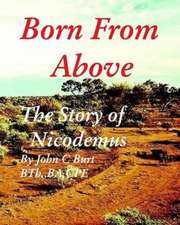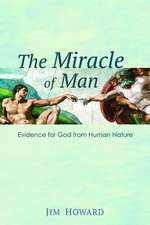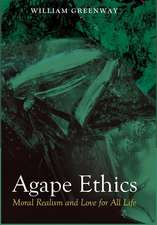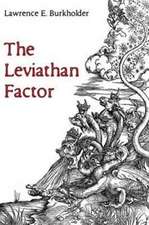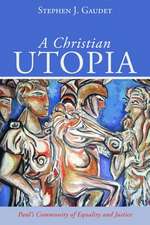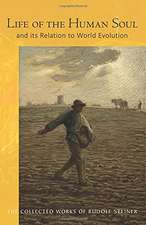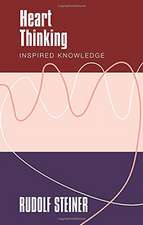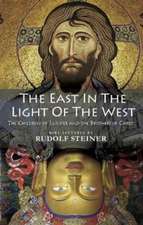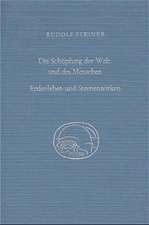The Human Spirit: Collected Works
Autor Rudolf Steineren Limba Engleză Paperback – 2 dec 2015
"To live in truth, to wish to be true in one's whole being, will be the watchword of the future" (Rudolf Steiner).
Amid the lies and propaganda of World War I, Rudolf Steiner struggled to convey the truths of the human spirit. The "truth" asserted by partisan interests, he suggests, is invariably tinged with dishonesty--whether by the outright mendacities of politicians and rulers (Steiner refers here to machinations of the British Empire), or by the manipulative techniques of secret societies intent on securing and shoring up their power.
Speaking of secret societies, Steiner highlights how, whereas we tend to reject overt authority today, we also succumb more easily to its covert forms in the "received wisdom" we often adopt unthinkingly. In seeking to help his audiences discern the spiritual struggle unfolding behind outer events, Steiner describes how the intrigues that led to the war were based on intentional deceit that served hidden aims hidden mostly from the general public.
In contrast to the divisiveness of lies, truth is based on realizing the interconnectedness of all things--interdependence between the realms "below" and "above." The "I," upon which all evolution on Earth is predicated, signifies victory over egoism and narrow self-interest, together with our imaginative embrace of all beings. Its spiritual reality--which descends to us from non-material worlds and toward which we evolve through our earthly lives--is the supreme truth.
In addition to his many other topics, Rudolf Steiner speaks about The Qur'an and the Mystery of Golgotha; Henry VIII, Thomas More, and the Church of England; the Jesuits and their State in Paraguay; Freemasons, esoteric symbols, and secret handshakes; Madame Blavatsky's occult imprisonment by Anglo-Saxon brotherhoods; Dostoyevsky's Brothers Karamazov; and the occult literature of Papus and L vi.
This volume is a translation from German of Gegenw rtiges und Vergangenes im Menschengeiste (GA 167).
Din seria Collected Works
-
 Preț: 108.82 lei
Preț: 108.82 lei -
 Preț: 200.85 lei
Preț: 200.85 lei -
 Preț: 137.18 lei
Preț: 137.18 lei - 33%
 Preț: 7821.78 lei
Preț: 7821.78 lei - 34%
 Preț: 9887.92 lei
Preț: 9887.92 lei - 33%
 Preț: 4143.51 lei
Preț: 4143.51 lei - 33%
 Preț: 7974.74 lei
Preț: 7974.74 lei - 34%
 Preț: 13651.81 lei
Preț: 13651.81 lei - 34%
 Preț: 14645.96 lei
Preț: 14645.96 lei - 34%
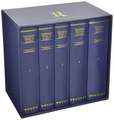 Preț: 6777.53 lei
Preț: 6777.53 lei - 34%
 Preț: 4466.25 lei
Preț: 4466.25 lei - 34%
 Preț: 12985.09 lei
Preț: 12985.09 lei - 33%
 Preț: 4416.87 lei
Preț: 4416.87 lei - 34%
 Preț: 12992.28 lei
Preț: 12992.28 lei - 34%
 Preț: 17436.88 lei
Preț: 17436.88 lei - 34%
 Preț: 7088.11 lei
Preț: 7088.11 lei - 36%
 Preț: 4327.12 lei
Preț: 4327.12 lei - 36%
 Preț: 628.29 lei
Preț: 628.29 lei -
 Preț: 340.56 lei
Preț: 340.56 lei -
 Preț: 354.05 lei
Preț: 354.05 lei -
 Preț: 345.19 lei
Preț: 345.19 lei -
 Preț: 355.96 lei
Preț: 355.96 lei -
 Preț: 312.57 lei
Preț: 312.57 lei -
 Preț: 322.22 lei
Preț: 322.22 lei -
 Preț: 365.97 lei
Preț: 365.97 lei - 18%
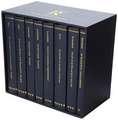 Preț: 7699.61 lei
Preț: 7699.61 lei - 18%
 Preț: 5949.99 lei
Preț: 5949.99 lei - 18%
 Preț: 4426.18 lei
Preț: 4426.18 lei - 55%
 Preț: 587.14 lei
Preț: 587.14 lei - 46%
 Preț: 705.71 lei
Preț: 705.71 lei - 18%
 Preț: 851.38 lei
Preț: 851.38 lei -
 Preț: 420.30 lei
Preț: 420.30 lei -
 Preț: 329.60 lei
Preț: 329.60 lei -
 Preț: 363.18 lei
Preț: 363.18 lei -
 Preț: 289.36 lei
Preț: 289.36 lei
Preț: 130.12 lei
Nou
Puncte Express: 195
Preț estimativ în valută:
24.90€ • 25.100$ • 20.56£
24.90€ • 25.100$ • 20.56£
Carte disponibilă
Livrare economică 25 martie-08 aprilie
Livrare express 11-15 martie pentru 30.08 lei
Preluare comenzi: 021 569.72.76
Specificații
ISBN-13: 9781855845220
ISBN-10: 1855845229
Pagini: 304
Dimensiuni: 235 x 155 x 28 mm
Greutate: 0.49 kg
Editura: Rudolf Steiner Press
Seria Collected Works
ISBN-10: 1855845229
Pagini: 304
Dimensiuni: 235 x 155 x 28 mm
Greutate: 0.49 kg
Editura: Rudolf Steiner Press
Seria Collected Works
Notă biografică
Rudolf Steiner (1861-1925) was born in the small village of Kraljevec, Austro-Hungarian Empire (now in Croatia), where he grew up. As a young man, he lived in Weimar and Berlin, where he became a well-published scientific, literary, and philosophical scholar, known especially for his work with Goethe's scientific writings. At the beginning of the twentieth century, he began to develop his early philosophical principles into an approach to systematic research into psychological and spiritual phenomena. Formally beginning his spiritual teaching career under the auspices of the Theosophical Society, Steiner came to use the term Anthroposophy (and spiritual science) for his philosophy, spiritual research, and findings. The influence of Steiner's multifaceted genius has led to innovative and holistic approaches in medicine, various therapies, philosophy, religious renewal, Waldorf education, education for special needs, threefold economics, biodynamic agriculture, Goethean science, architecture, and the arts of drama, speech, and eurythmy. In 1924, Rudolf Steiner founded the General Anthroposophical Society, which today has branches throughout the world. He died in Dornach, Switzerland.


